In the new Street Fighter movie, Chun Li is REPEATEDLY told that only she can stop Bison.
There is no evidence of this.
—Matthew Belinkie, Overthinker
We’re going to go from the inside out here folks. I’m going to start talking about Dragon Ball and something I think makes Dragon Ball special — then I’m going to branch off pretty quickly into the rest of pop culture, why it is the way it is, and what it can learn from Toriyama’s storytelling style.
I was very glad when Atomic Red wrote in to ask us about “The Chosen One” in popular culture, because I’d just completed a vigorous e-mail exchange with Belinkie on this very topic — and on how it relates to how much the new Dragon Ball movie sucks in both concept and execution (although this was mostly drawn from the trailer, as I have not seen it yet).
According to the trailer, the Dragon Ball movie is about magical Dragon Balls being created by seven mystics who defended the earth from an alien invasion, and how somebody needs to find them so that he can save the world in the style of people who came before. Who? Why, “The Chosen One,” of course.
This is nonsense. Everybody knows the Dragon Balls were created by the Namekian Kami, after he banished evil from his body and became Guardian of the Earth, as a challenge to the people of Earth to test their courage and follow their dreams, and that most people looking for them at the beginning of the story just want sex.
Okay, maybe not everybody knows that. I will concede it is somewhat beside the point.
The point is, I am tired of prophesy and destiny dominating popular adventure media. I am so tired of reluctant, dithering heroes being told they need to do something that they are thoroughly incapable of doing and that is totally against their natures, with the main justification being a mystical prophesy that, until this very moment, has usually not come up in any of these characters’ lives.
Look, I don’t have a problem with the cliche in and of itself. I love Star Wars. Heck, it’s a pretty standard sort of story idea. It just only works for certain sorts of stories, which don’t need to be told all that often. Plus, it’s shoehorned into stories where it doesn’t work, doesn’t add anything, and doesn’t make sense — and it’s done so far too often with little in the way of subtlety.
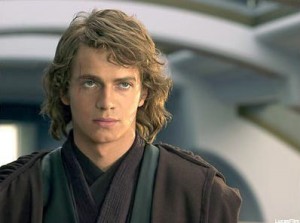 But the Chosen One motif has taken over most of our movies and is gaining steam rather than losing it.
But the Chosen One motif has taken over most of our movies and is gaining steam rather than losing it.
Encouraged for ten years or more by modern misfit Bildungsromans like The Matrix and Spider-Man that are mostly just copping on Granddaddy Star Wars, it seems as if every other action movie out there takes a character in a thoroughly secular world and gives him a flimsy exclusivity on the spiritual.
And it’s more than just this specific character type; the character tends to come into his/her own in the same prectable way. Everything else in the world has clear, scientifically comfortable explanations — everything is nice and clean and people buy food at the supermarket, clothes at the mall and iPods at the Apple Store — except there is supernatural agency at work demanding that a 16 year old girl has to go try to jump kick a random third-world dictator dressed as a two-bit executive halfway across the world for no discernible reason, and that’s okay, because she’s special.
But why? Because God says so – except it isn’t God, it’s Destiny. Or the Prophets. Or a really smart primordial computer with a beard. Or the Seven Mystics of Ridiculous Travesty. Or <REDACTED RANT ABOUT THE THOROUGHLY INADEQUATE SERIES FINALE OF BATTLESTAR GALACTICA>.
Heck, a lot of the time, they don’t even bother to tell you who Chose the Chosen One in the first place. And that’s pretty frickin’ lame, because if I’m a protagonist, and I’m going to externalize all my motivations in life — to totally reverse my mentality and preferences and aspirations for myself because I have been Chosen, then I’m sure as Heck going to make a serious evaluation of the Chooser before signing any papers.
Being the Chosen One in some of these nonsense movies is like taking out a mortgage without knowing the name of the bank.
Credit card companies send me letters that I’ve been Chosen all the time. The correct Choice for those is to trash them. They should make a movie about a reluctant teenager who one day gets an e-mail from an old master who tells him he’s been CHOSEN, and that it’s his DESTINY help him save $10 million dollars that belong to a displaced African dignitary. All he has to do is send his bank account number . . .
On the other side of the coin, I am equally tired, if not more so, of that moment near the end of so many movies where somebody is about to do something, and then everybody stops, and somebody yells “YOU HAVE A CHOICE!”
You know, thank you for stopping everybody. It’s good you say that, because, up until this point, the guy has just been reading the script. Thanks.
Are all these movies being written by the same guy? Is there a script doctor who goes to every action movie and insists “No! No! Tell, don’t show! Tell me that the character needs to get in a fight. Tell me the character needs to throw the switch and turn off the Dark Electricity Generator or what have you. Explain it. Just say that it has to happen, and then we don’t have to worry about imitating or portraying human behavior, which is boring and bad for movies.
And I want more destiny in this picture. Nothing sells like determinism!”
Choosing Dragon Ball
Dragon Ball (at least the original comic) isn’t about any of that crap at all. Dragon Ball is about having fun, improving yourself and enjoying life even in the face of material and existential disaster. The first thing the protagonist Goku does in the book is fistfight a giant sword-wielding wolfman. The last thing he does is fistfight a 14-year old boy. Goku loves fighting, and he rarely has to be convinced to do it. If anything, he fights too much, which is why he is always getting killed and stuff.
In Dragon Ball, the characters who harp about destiny may win a few dozen early fights, but, when it matters, they always get their asses kicked, repeatedly and hard. The characters who win are the ones that work hard, push their limits, and love what they do. If you’re not having fun, you’re doing it wrong.
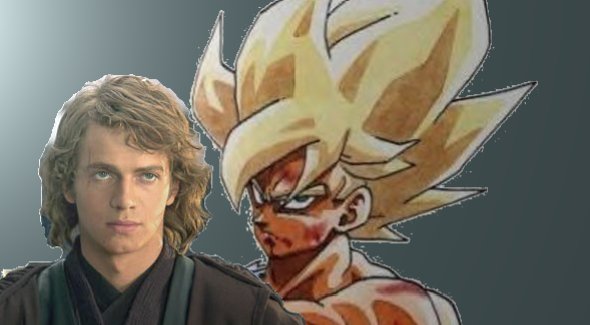
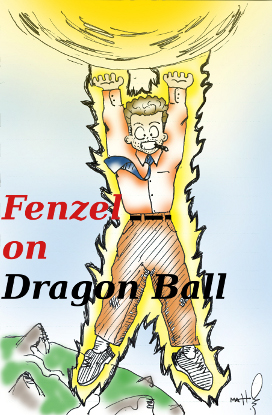
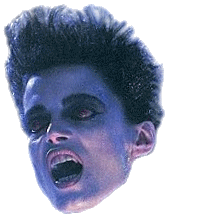
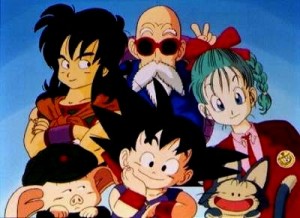
Good read!
I wonder how much, if at all, Terminator Salvation will touch on the chosen one aspect of John Connor. I haven’t really followed the Sarah Connor Chronicles (and after reading all the praise on here, I probably should) but I think I remember John Connor at some point throwing the idea out there that what happens if he refuses to lead the resistance. Does the “chosen one” have a choice in the matter? All the movie examples put forth here would seem to say no (Star Wars, Matrix, even Dragonball).
Anybody have any movies or literature where the “chosen one” goes against the prophecy?
JoeMc, it’s been a while since I read it (and the series won’t end for a while yet, so I’m not sure how the issue will be resolved) but as I recall the Wheel of Time books deal with this issue pretty extensively. Plus they’re a pretty fun read. I’d recommend checking them out if you haven’t, although you might just wait until 2011.
Great piece Fenzel!
I think the reason Star Wars absolutely nails the “chosen one” idea, in the entirety of its six episodes, is Lucas allows the characters to make their own guesses as to how the prophecies play out. Anakin is the chosen one who will bring order and balance to the force, but unfortunately for the Jedi THEY are the one’s unbalancing the good vs. evil teeter-totter of the Force. Thus Anakin DOES fulfill his prophecy, but in a way the Jedi didn’t expect, by killing these hundreds of Jedi and then, later, killing the Emperor. But the key here is we are mistakenly led by other characters to believe something different than what actually happens: in the original trilogy, we believe that Luke is the chosen one because Yoda and Obi-Wan tell him this, only to find out that it is Vader who kills Palpatine, while in the prequel trilogy, those without the knowledge of the original movies believe Anakin will be good because many of the other characters believe this, only for him to become evil. It’s a great bait and switch, both times!
“DESTINY! DESTINY! NO ESCAPING THAT FOR ME!”
Seriously, though, great article, Fenzel. I especially liked this part: “You are hamstringing yourself with a very specific ideology.”
It’s not only an ideology that demands the universe has a “chooser” to pick the chosen one. It’s also an ideology that is clearly monarchical in nature. As I said back in my Pan’s Labyrinth post, the hero’s/chosen one journey comes from King Arthur-type legends and is a justification for the rule of an authoritarian leader. In other words, “You have to listen to me, your king, because I am the Chosen One who pulled the sword from the stone and defeated the old evil king/empire/Saiyan. I also have magical powers.”
This is not to say that I’m against prophecies in all texts, however. Actually I still adore the old Greek tragedy notion of the misunderstood prophecy. (Jonathan hit the nail on the head with the Star Wars trilogies. Those prophecies worked because they played out in surprising ways.) The problem is that prophecies have been so overused lately. But if you do something different with them, like Rowling does in Harry Potter, they can still surprise.
@JoeMC
There are lots of movies where the Chosen One goes against the prophecy, and most of the time in those cases, the prophecy carries some pretty severe drawbacks, up to and including the destruction of the universe.
Three fun movies that explore this sort of scenario –
Hellboy
The Devil’s Advocate
The Last Temptation of Christ
Then of course, there’s _Good Omens_ by Terry Pratchett and Neil Gaiman, which gets a lot of mileage out of this idea. I heartily recommend it.
@Fenzel: One of my favorite shirts in 7th grade had that first full-body shot of Goku as SS on the front (and that’s it). Nostalgia…
Anyhoo, awesome post, and great job at tying it in with the Popular Culture in general. I couldn’t agree with you more when you list off why it does and doesn’t work. One notable aspect about the SS prophecy in particular is how Vegeta is willing to accept it isn’t about him. He passes the torch off to Goku as he dies, and thus lets go of that pride you mentioned- at least, for the moment. But his entire life, up until that moment, had been his quest to become a Super Saiyan. I think that also has something to do with why Goku forgives him.
I’d like to nit-pick a little, though. I have not read any _Spider-Man_, so correct me if I’m wrong, please. But, it’s my understanding that he becomes what he becomes through an “organic” transformation (sort of like Goku’s)- something happens and he makes the choice to become Spider-Man. No one tells him he *must* do it and has no say in the matter. So, are you saying the circumstances of Peter Parker’s “transformation” were SO constricting that he may as WELL have been told it was prophecy? Otherwise, I’d say his is even less like Han’s or Neo’s than Goku’s is.
@Mlwaski: I think your last post and the part about dramatic irony fit into the discussion- the reason those prophecies in ancient Greek tragedies work is their dramatic irony, as you say. I suppose for _Dragonball_, the dramatic irony is Goku’s oblivion/disinterest with regards to the prophecy while it’s kind of obvious to the audience that he’s going to be a SS. This, of course, makes the prophecy work and not feel *too* cliche. And it’s also sort of dramatic irony that Vegeta strove his whole life to fulfill the prophecy, even though, again, the audience is able to tell he’s not “it” the whole time (or at least up until the first SS transformation in the series). (BTW, Neville ended up being one of my favorite _HP_ characters.)
(Oh, and Fenzel, a kernel for a post about race and _Dragon Ball_: Why are Super Saiyans blonde-haired and blue-eyed?)
Buffy always seemed to make prophecy interesting.
I was starting a really long comment about Buffy and how even though she’s a “Chosen One”, she’s more like Goku than Luke, Neo, or Harry Potter, but I realized it was going to get a little out of hand, so I think I’ll just blog on my own time about how Buffy chooses to be chosen, which I think is a process that determines whether or not the device of the “Chosen One” is earned or not. Kind of like what JoeMc said about John Connor.
Hmm. Long sentences happen at 3am.
Anyway, I also think there’s something to the finite destiny versus the continuous destiny thing that’s mostly divided along the film/TV (or comic) line.
By “Han” I meant “Luke.”
Although now that I think about it, the fact that it ended up being Anakin anyway while he had never actually been told the prophecy (right?) makes it a little awkward. Still, I think Peter’s status is more chosen by Peter than Neo’s and Goku’s, since he isn’t operating under any prophecy.
@Lauren —
When you finish the post, send it my way! I’ll link to it! I’d love to read it!
Hey I’m mentioned in here! Thanks for including me!